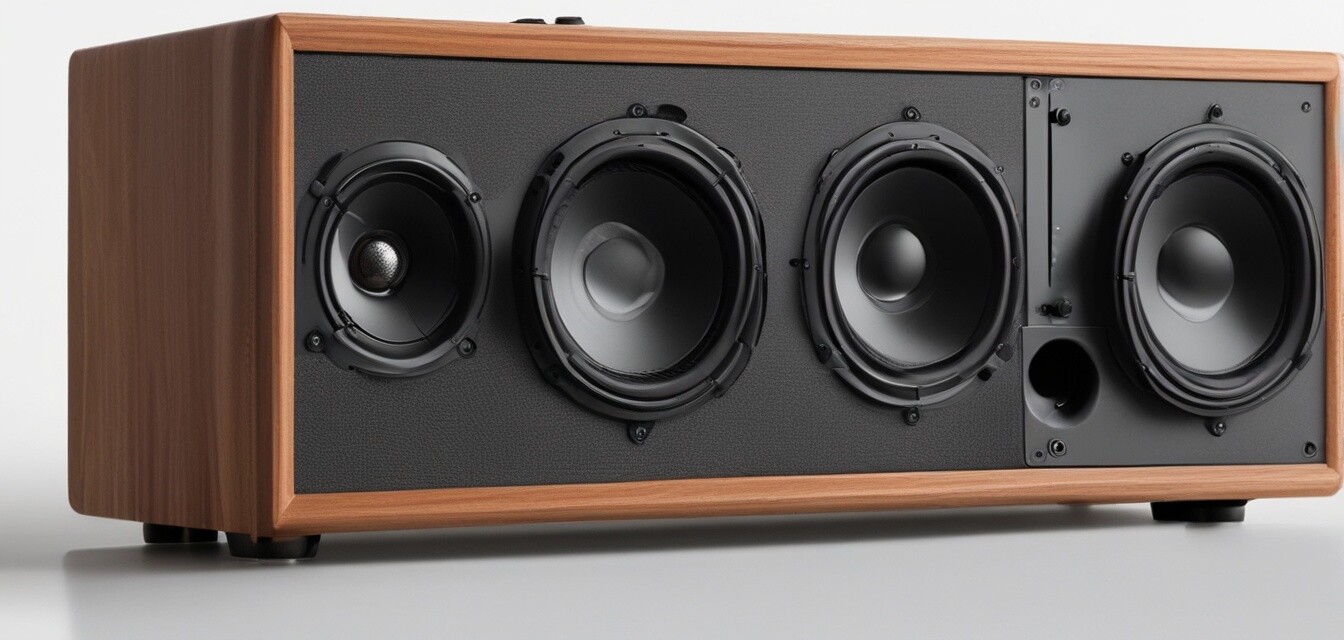
Advantages of Active vs. Passive Speakers
Key Takeaways
- Active speakers come with integrated amplifiers, while passive speakers require external amplifiers.
- Active speakers are generally easier to set up, whereas passive speakers offer more versatility in setups.
- Understanding your listening environment and needs is crucial in choosing the right speaker type.
- Both speaker types have unique advantages catering to different user preferences.
- Active speakers are perfect for those looking for a simplified audio experience, while passive speakers suit enthusiasts aiming for customization.
Whether you’re a casual listener or a dedicated audiophile, choosing between active and passive speakers can be a significant decision. This article delves into the advantages of both types, helping you make an informed choice that best meets your needs.
What are active speakers?
Active speakers, also known as powered speakers, come with a built-in amplifier. This means they don’t require the addition of an external amplifier to produce sound. They are designed to provide a more straightforward setup process with fewer components and cords.
Advantages of active speakers
- Built-in amplification: No need for additional components.
- Simplified setup: Typically plug-and-play, making them user-friendly.
- Consistent performance: Optimized components for better sound quality.
- Space-saving: Less equipment means more room in your audio setup.
- Integrated features: Some models include Bluetooth or USB connectivity.
What are passive speakers?
Passive speakers rely on an external amplifier to function. These speakers do not have built-in amplification and require a separate amplifier or receiver to power them.
Advantages of passive speakers
- Greater versatility: Users can choose their amplifier, tailoring their sound system.
- Potential for better sound quality: High-end components can improve audio performance.
- Upgradability: Easier to replace components as needs or preferences change.
- Wider range of sizes: Available in various sizes and styles for different setups.
- Cost-effective: Often less expensive, allowing for budget flexibility.
Comparative analysis
| Feature | Active Speakers | Passive Speakers |
|---|---|---|
| Amplification | Built-in | External required |
| Setup | Simplified | More components |
| Sound optimization | Factory-tuned | User-tuned |
| Space requirements | Less space | More space |
| Cost | Higher initial cost | Potential for lower cost |
Which one should you choose?
Your decision should be based on your specific needs and usage. Let’s summarize the preferred use cases for both speaker types:
- If you need a quick, easy setup for general use, consider active speakers.
- If you enjoy customizing your audio system and plan to upgrade components, passive speakers might be the right fit.
- For a dedicated home theater experience, explore our range of home theater systems.
Tips for choosing the right speaker
Beginner's tips
- Determine your listening environment: Assess the space where you'll use the speakers.
- Know your budget: Having a clear budget helps narrow down your options.
- Consider your intended use: Different speakers perform better in different scenarios.
- Research: Read reviews and guides to understand your options better.
- Try before buying: If possible, listen to both speaker types to see which you prefer.
Pros of active speakers
- Easy to set up and use
- Compact and space-efficient
- Less complicated wiring
Cons of active speakers
- Generally more expensive
- Less flexibility in component upgrades
Pros of passive speakers
- Wider selection of components
- Potential for higher-quality sound
- Ability to upgrade easily
Cons of passive speakers
- More complicated setup
- Requires more space for the amplifier
Conclusion
The choice between active and passive speakers largely comes down to your personal preferences and how you intend to use them. For those seeking convenience, active speakers may be more suitable. However, if you value flexibility and customization, passive speakers could be the right choice. Whichever option you prefer, make sure to explore our extensive collection of soundbars and subwoofers to enhance your audio experience.